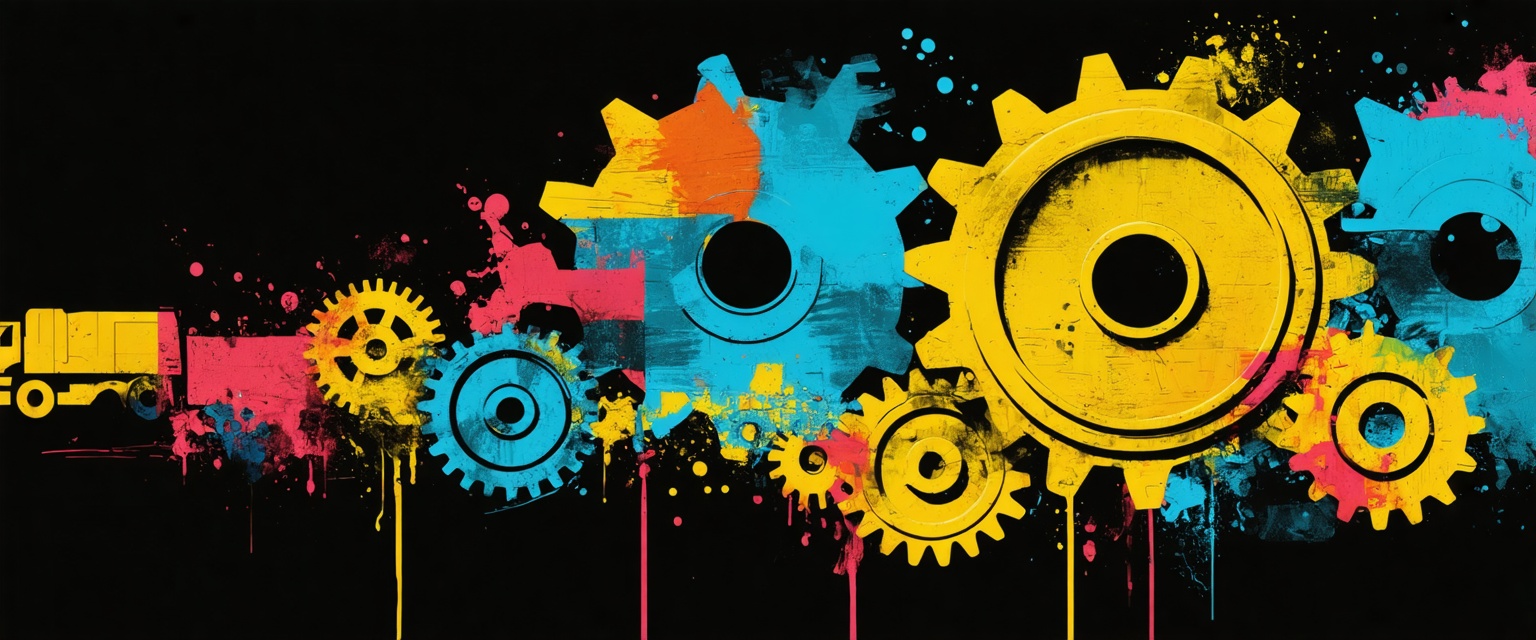Discover how AI automates meeting scheduling in construction with Google Calendar, streamlining coordination for architects, engineers, and clients.
Coordinating meetings among architects, subcontractors, engineers, and clients is a constant headache in construction. Missed appointments and overlapping schedules can halt progress, inflate costs, and derail even the most meticulously planned projects. The critical problem is clear: inefficient meeting scheduling threatens your project's success.
By leveraging AI to automate meeting scheduling in construction through Google Calendar, Agentic AI's data connectors streamline coordination by integrating AI directly into your existing tools. This makes it effortless to align everyone's calendars and keep your project on track. By harnessing this technology, you can eliminate scheduling bottlenecks and focus on what truly matters—bringing your construction project to life. Let's delve into how this can transform your next build.
Overview of AI in the Construction Industry
Artificial intelligence is reshaping how construction projects are managed. By adopting AI, the industry is seeing improvements in safety, productivity, and overall execution. AI-powered tools handle tasks like scheduling, resource allocation, and real-time progress tracking, reducing human error and speeding up timelines. Managers can tap into historical project data to predict schedules and identify potential setbacks early, avoiding cost overruns and enhancing planning accuracy.
AI also plays a significant role in safety management. Systems use sensor data to detect emerging hazards, enabling teams to take preventive actions before incidents occur. Predictive analytics further boost reliability by flagging machinery maintenance needs ahead of time, minimizing breakdowns that can halt projects.
In short, AI has become an indispensable partner in construction. Embracing these capabilities leads to more streamlined operations and drives innovation in the field.
The Significance of Meeting Scheduling in Construction
Scheduling meetings in construction isn't just a task—it's a critical component that can make or break a project. Coordinating architects, subcontractors, engineers, and clients requires careful attention to timing and logistics. When one group falls behind, the entire timeline can start to unravel, especially since each phase depends on the completion of the previous one.
Delays do more than cause frustration; they can inflate budgets and compromise safety or regulatory compliance. Regular, well-organized meetings keep everyone aligned on responsibilities, uncover issues before they escalate, and reinforce accountability. Effective scheduling strengthens communication channels, maintains project timelines, and ensures resources are used efficiently. This foundation is vital for minimizing risk and keeping stakeholders informed and prepared.
Challenges in Meeting Scheduling within Construction
Nailing down meeting times in construction is no small feat. Projects involve multiple stakeholders juggling diverse priorities. An architect might only be available in the morning, while a site manager is tied up on-site until late afternoon. Aligning these schedules often leads to constant reshuffling and lost momentum.
The hands-on nature of construction adds another layer of complexity. On-site teams may face sudden issues requiring immediate attention. If a critical decision needs input from an off-site engineer or project manager, any delay in scheduling can disrupt the project's carefully balanced timeline.
Tight deadlines heighten the challenge. Missing just one meeting can set off a domino effect, making it harder to finish on time and within budget. Imagine an unexpected structural concern that demands a quick meeting between the client, engineering team, and contractors. If scheduling conflicts get in the way, delays can quickly push the entire project off track.
These hurdles highlight the importance of efficient scheduling tools. In construction, avoiding unnecessary bottlenecks can save both money and headaches.
How AI Automates Meeting Scheduling in Construction with Google Calendar
Integrating AI with Google Calendar revolutionizes meeting logistics, especially in a field where precision is key. Automated insights and proactive scheduling suggestions relieve managers from the grind of manually checking crowded calendars. This is how AI automates meeting scheduling in construction with Google Calendar.
Core AI Scheduling Capabilities
AI-powered scheduling tools analyze calendars to suggest optimal meeting times based on participants' patterns and priorities. They can set up recurring meetings automatically, adjust schedules when last-minute changes occur, and prevent double-booking. This dynamic approach provides a central plan for your team's commitments, reducing slip-ups or overlooked appointments.
The Synergy of AI Tools and Google Calendar
Coupling Google Calendar with AI brings more flexible, personalized scheduling. Integrated AI assistants spot potential overlaps and quickly suggest alternatives. They consider time zones, travel buffers, and user preferences, so whether team members are on-site or in the office, they won't feel rushed. Context-based reminders help everyone come prepared, cutting down on confusion and late starts. Ultimately, it's a practical way to align meetings with the demands of construction work.
AI Technologies and Their Functionality
AI solutions are transforming scheduling by automating routine tasks, handling time zone differences, and avoiding common conflicts. Many tools sync directly with your email, pulling meeting details from conversations and adding them to your calendar automatically.
They manage time zone complexities by adjusting meeting times so everyone sees accurate local times. Conflict detection is another significant advantage. AI can alert you if a meeting overlaps with other events, helping keep urgent discussions from slipping through the cracks.
Google Calendar plays a pivotal role by offering immediate syncing, smart reminders, and suggested time slots. AI integrations can learn your meeting habits—like preferring morning calls or avoiding back-to-back sessions—and adapt to your style automatically.
By leveraging these features, project managers free up time for oversight and strategizing. In construction, that can mean the difference between a project that runs smoothly and one that gets bogged down.
Setting Up AI for Meeting Scheduling in Google Calendar
Implementing AI with Google Calendar can transform coordination in construction settings. Here's a straightforward setup guide, along with tips for tailoring it to large-scale projects.
Step 1: Choose the Right AI Scheduling Tool
Select a scheduling platform that integrates with Google Calendar—options like x.ai, Calendly, or Zoom’s AI Scheduler. To optimize the use of Calendly, look for features like automated booking, rescheduling, and the capacity to handle large participant lists. Decide what's most important: managing multiple stakeholders, accommodating varying deadlines, or handling frequent last-minute changes.
Step 2: Link the AI Tool with Google Calendar
- Sign up for an account with your chosen platform.
- Authorize Google Calendar access by granting the tool permission to view and manage events.
- Complete any verification or API steps needed to finalize the connection.
Step 3: Configure Basic Settings
- Availability Windows: Limit meeting times to align with field updates, daily briefings, or crew shifts.
- Meeting Durations: Standardize how long each session runs, from project kickoffs to safety reviews.
- Buffer Times: Build in breaks between meetings to keep schedules realistic.
Step 4: Customize AI for Construction Projects
- Create Custom Meeting Types: Label meetings according to project phase or subject (e.g., “Site Walkthrough,” “Budget Review”).
- Manage Invitees at Scale: Prevent accidental double-booking with subcontractors or large groups.
- Attach Project Documents: Share design specs or blueprints directly in calendar invites.
Step 5: Ongoing Management and Adjustments
- Fine-Tune Settings: Monitor how well AI scheduling meets your project's needs and adjust as deadlines shift.
- Team Training: Offer quick workshops so everyone knows how to request and accept meetings.
Following these steps provides a smoother approach to scheduling, keeping your construction projects organized and on track.
Benefits of AI in Meeting Scheduling
Project managers frequently juggle schedules for multiple teams, and AI-driven scheduling eases much of that burden.
Efficiency and Productivity
Instead of spending hours scrubbing calendars, AI tools handle the heavy lifting. Automated invites, confirmations, and reminders cut down on administrative back-and-forth. With less time tied up in logistics, managers can focus on critical tasks that move projects forward.
Improved Coordination and Communication
AI provides teams with real-time updates and notifications, ensuring everyone knows when, where, and why a meeting is happening. In construction, this consistency helps prevent missed site visits or misaligned inspections. Stakeholders stay informed, decisions come faster, and confusion about meeting details diminishes.
Challenges and Considerations in AI Implementation
Introducing AI can raise concerns, especially if team members worry about significant changes to their workflow. Open communication and practical demonstrations can ease these feelings by showing how AI streamlines duties, not replaces them.
Cost is another consideration. AI integration requires an upfront investment in software and training. A gradual rollout can help manage expenses and give teams time to adapt. Comprehensive training is essential—everyone should understand the basics of scheduling and rescheduling using AI tools, as well as deeper features.
Scalability is crucial. The tool you adopt for a small team should adapt as projects multiply or teams expand. Strategy matters too; adopting AI without a plan can lead to confusion or investing in tools that don’t fit future needs. By planning thoughtfully, you ensure you won't outgrow your chosen platform prematurely.
How Agentic AI Simplifies Construction Task Automation
Construction is demanding, and getting bogged down with repetitive tasks only adds to the pressure. Agentic AI tackles these bottlenecks by connecting seamlessly with key construction software and automating daily routines. Tasks like documentation workflows, submittals, and change orders progress without constant oversight.
Imagine linking Procore, PlanGrid, or Autodesk BIM 360 to Agentic AI. Suddenly, RFPs, submittals, and project updates move smoothly between systems, reducing manual data transfer. Teams experience fewer communication gaps, and project managers gain real-time visibility into critical metrics.
Agentic AI also integrates with Microsoft Project, Primavera P6, and even accounting systems like Sage 300 or QuickBooks. That means updates in scheduling or budgeting reflect instantly across platforms, keeping everyone in sync.
Here are a few ways this helps:
- Document Management: AI agents sort incoming submittals, RFIs, and change orders, directing them to the right people and speeding up reviews.
- Safety Compliance: By tracking incident reports and certifications, the platform automatically flags potential violations.
- Progress Tracking: Daily reports, photos, and schedule changes feed into automated dashboards, helping you catch bottlenecks early.
- Communication: Live notifications integrate with Slack or Microsoft Teams so the right folks see urgent items and respond promptly.
By leveraging Agentic AI's data connectors and AI agents, you offload repetitive tasks and focus on bigger priorities. That leaves more room for project oversight, meaningful collaboration, and strategic growth.
Simplify Meeting Scheduling in Construction with Agentic AI and Google Calendar
Ready to eliminate scheduling headaches and keep your construction projects on track? Discover how AI automates meeting scheduling in construction with Google Calendar through Agentic AI.
Integrate Google Calendar with major construction platforms like Procore, PlanGrid, and BIM 360. With Agentic AI's data connectors, you get AI-driven assistance that streamlines meeting coordination and automates tasks like RFP analysis and submittals.
Experience real-time insights and optimized scheduling tailored to the unique challenges of construction.













